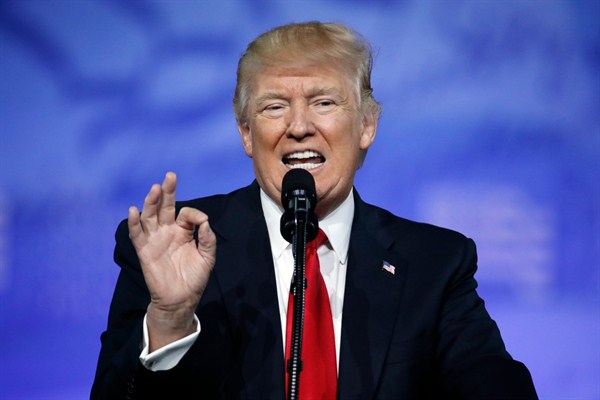U.S. President Donald Trump, in words and action, favors bilateral relations as the cornerstone of his foreign policy. Special ties to some key countries and leaders will always be important, but his approach is downplaying the value of regional systems and multilateralism, and of their institutions. As a result, it will fall short in protecting American interests in an age of redistributed power and transnational threats.
In his first month in office, Trump has held bilateral meetings with the leaders of the U.K., Canada, Japan and Israel, while having one with Mexico’s president canceled. Watching his strangely aggressive handshakes and his comments about his new friends makes clear that he plans to determine which leaders he can do business with and which he can’t, and that his opinion of his counterparts matters more than the formal vetting process that the State Department provides the White House, as it tries to allocate access to the president as a tool of American power and influence.
The leaders who have already had their Oval Office photo op are indisputably deserving of presidential attention, and would be high on any administration’s list, but the tone and the content of the exchanges convey a different message. Trump is clearly less interested in foreign policy in general than some of his predecessors, and his instinctive demonstration of dominance in each of these bilateral relations will not always produce the results he seeks. What remains to be seen is whether he will become a good listener when it comes to other countries’ perspectives, and will be able to adapt his policy preferences to their input, both of which are crucial elements in managing relations productively.

